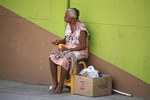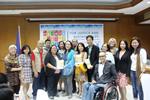Published on Sat, 2016-07-09 05:48
Peru has experienced sustained economic growth, due largely to rising prices of gold, copper and other minerals, but virtually the entire territory has been given in concession to mining, oil, and logging companies, frequently in conflict with local populations. Income poverty has decreased, but multidimensional poverty has worsened. Progress has been made in circulation of money and electronic and telephone connectivity, but there has been a decline in quality of life and public safety, as increased levels of crime is taking over streets and cities and corruption resulting from the influence of corporate power reaches every part of the government. |
Published on Fri, 2016-07-08 22:48
Cyprus is situated in the intersection of Africa, the Middle East and Europa. However, instead of the more nuanced and fluid identity required for the country to be a truly multicultural society, public and private discourses are polarized, traditionally between Turkey and Greece and, since the banking crisis of 2015, between those defending public welfare spending and the power of labor unions and the advocates of free market neoliberalism and limited government. The 2030 Agenda risks confronting a long established inertia on the part of the Government with regard to non-binding agreements and will likely be opposed by the corporate sector, as it will be assumed that the ethical standards, like due diligence and minimization of carbon footprint, will increase their operational cost or lower the demand. |
Published on Fri, 2016-07-08 19:02
Social Watch, with different partners will be co-hosting several side-events during the High-level Political Forum on Sustainable Development (HLPF) to be held in New York, July 11th to 20th, 2016. See below the information of the side events. |
Published on Fri, 2016-07-08 18:15
Signing up to the promise of a Philippines where no one is left behind and following the path to sustainability, Social Watch Philippines (SWP), along with the CSO contributors from its network, presents on Friday our "Spotlight Report" on the 2030 Development Agenda in a dialogue with the National and Economic Development Authority (NEDA) at SEAMEO-Innotech, Quezon City. This is in time for the presentation of the Philippine report to the first High Level Political Forum (HLPF) on July 11-20 at the UN Headquarters in New York. In consort with 22 other countries, the Philippines is expected to lead the national review and report on how the 2030 agenda will be translated into national sustainability plans. |
Published on Fri, 2016-07-08 18:06
The Philippine economic growth is unjust and not sustainable, as the nation's wealth is concentrated among few billionaires and highly dependent on fossil fuels, according to Social Watch Philippines. "A just and sustainable growth ensures that no one is left behind," Isagani Serrano, SWP co-convenor and Philippine Rural Reconstruction Movement president, said on Friday. The civil society group noted the Philippines can achieve its sustainable development goals by 2030 if the economic growth is not concentrated in the hands of a few billionaires. |
SUSCRIBE TO OUR NEWSLETTER






